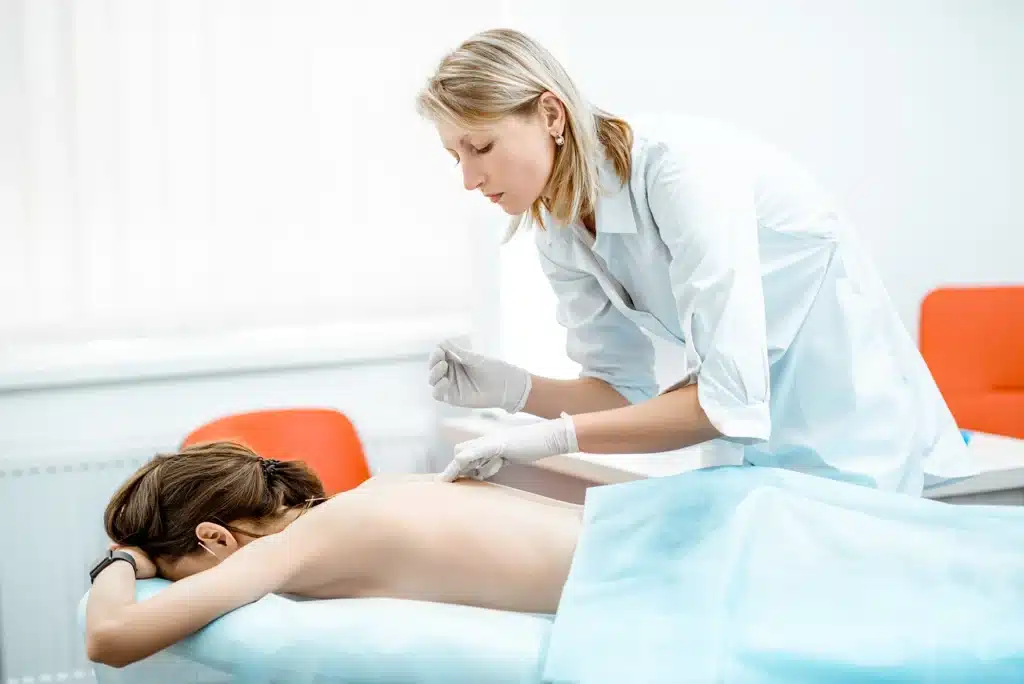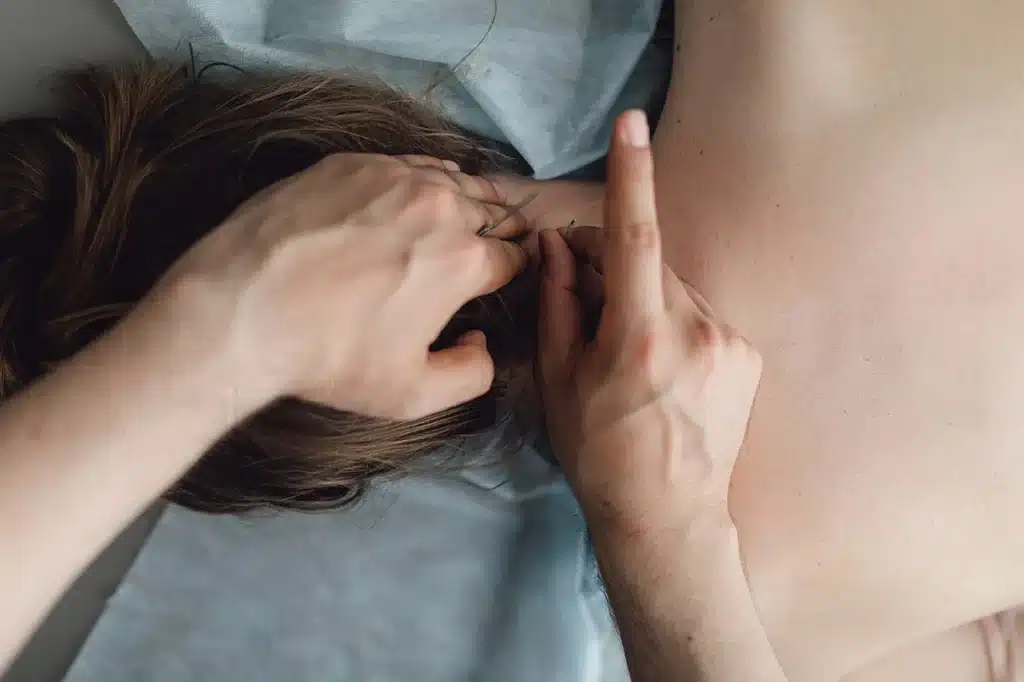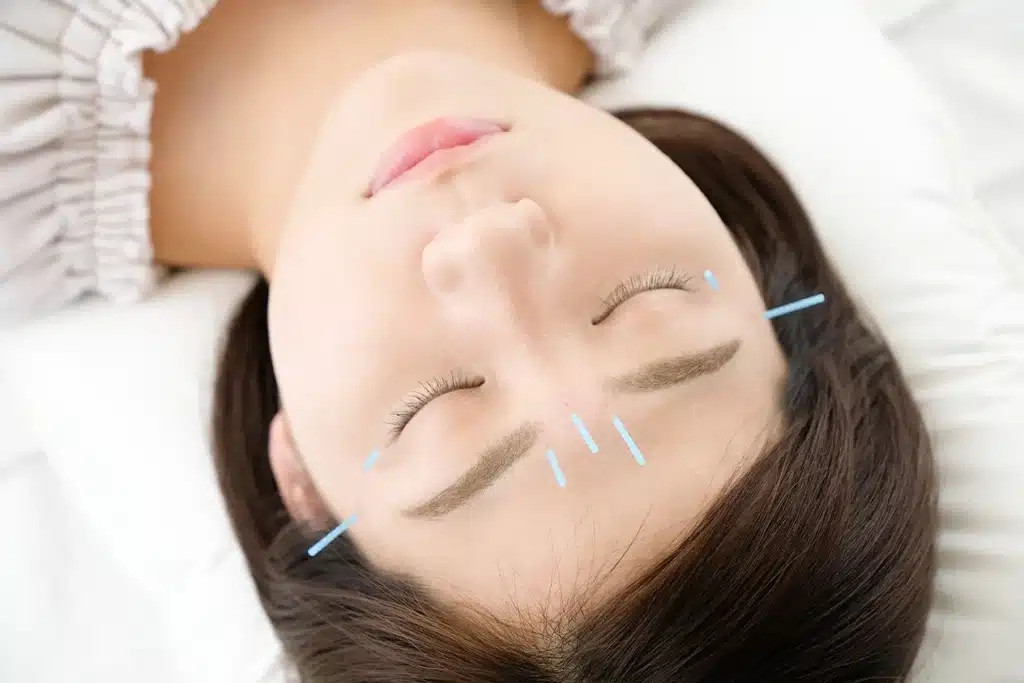
Table of Contents
ToggleWelcome to a world where acupuncture isn’t just an age-old tradition, but a potent remedy to modern-day afflictions.
Today, we’re focusing on temporomandibular joint (TMJ) disorder, which often manifests in relentless jaw clenching. Is acupuncture the beacon of hope for those suffering from this condition?
Let’s dive in the acupuncture for jaw clenching.
TMJ disorder is a troublesome condition that affects the joint connecting the jaw to the skull. Symptoms can include jaw pain, difficulty chewing, and, often, persistent jaw clenching.
These symptoms could be a result of various factors ranging from arthritis to jaw injury, with stress being a common trigger.
For many, TMJ disorder is an unwelcome disruption to daily life. Traditional treatments may include pain relievers, oral splints, or even surgery in severe cases.
But what if there was a less invasive, more natural solution? Enter acupuncture!
A fundamental aspect of traditional Chinese medicine, acupuncture has been practiced for thousands of years. By inserting thin needles into specific points on the body, acupuncture aims to rebalance the body’s energy or ‘Qi’, promote healing, and relieve discomfort.
When it comes to TMJ and acupuncture for jaw clenching, here’s how this age-old technique can work its magic:
Promoting the release of endorphins: These natural painkillers are released during an acupuncture session, which can provide relief from TMJ-associated discomfort.
Many individuals have testified to the effectiveness of acupuncture for jaw clenching related to TMJ disorder. Alongside these heartening anecdotes, scientific studies are also shining a light on acupuncture’s potential.
A study published in the Morningside Acupuncture NYC found that acupuncture significantly improved TMJ symptoms, further substantiating the therapeutic potential of this technique.

A typical acupuncture session for TMJ treatment begins with a thorough discussion of your symptoms.
The practitioner then inserts thin needles into specific points on your body, including the area around your jaw. You may feel a slight pricking sensation, followed by a sense of relaxation.
Post-session, you might notice immediate relief, though several sessions may be necessary for lasting improvement.
The beauty of acupuncture is its holistic approach. Rather than focusing solely on symptoms, acupuncture treats the entire person.
Alongside your acupuncture sessions, consider integrating lifestyle changes and stress management techniques. Regular exercise, a balanced diet, mindfulness meditation – these can all augment the healing power of acupuncture.

Not all needles are created equal, and the same goes for the hands that wield them. Seek out an experienced, well-qualified acupuncture practitioner to ensure optimal results.
Here are a few questions you could ask:
Local health and wellness directories, recommendations from friends or family, and online reviews can help you find a suitable practitioner.
The world of acupuncture offers a fascinating and potentially effective solution to TMJ disorder and associated jaw clenching.
This ancient practice harnesses the body’s innate healing abilities, promoting relaxation, reducing inflammation, and releasing natural painkillers. While scientific research into this area continues, testimonies and early studies reveal a promising outlook.
We encourage you to consider acupuncture as part of your journey towards relief from jaw clenching. If you have your own experiences with acupuncture for jaw clenching or any thoughts to share, please do! Your insights could be the beacon of hope for others dealing with this challenging condition.
GET IN TOUCH +
285 Sills Road
Building 5-6, Suite E
East Patchogue, NY 11772
(631) 475-5511
184 N. Belle Mead Road
East Setauket, NY 11733
(631) 675-6226
GET IN TOUCH +
285 Sills Road
Building 5-6, Suite E
East Patchogue, NY 11772
(631) 475-5511
184 N. Belle Mead Road
East Setauket, NY 11733
(631) 675-6226
SUBSCRIBE TO OUR NEWSLETTER +
Send us a Google review. Click this link and let us know how we did!
Review us on Yelp too.